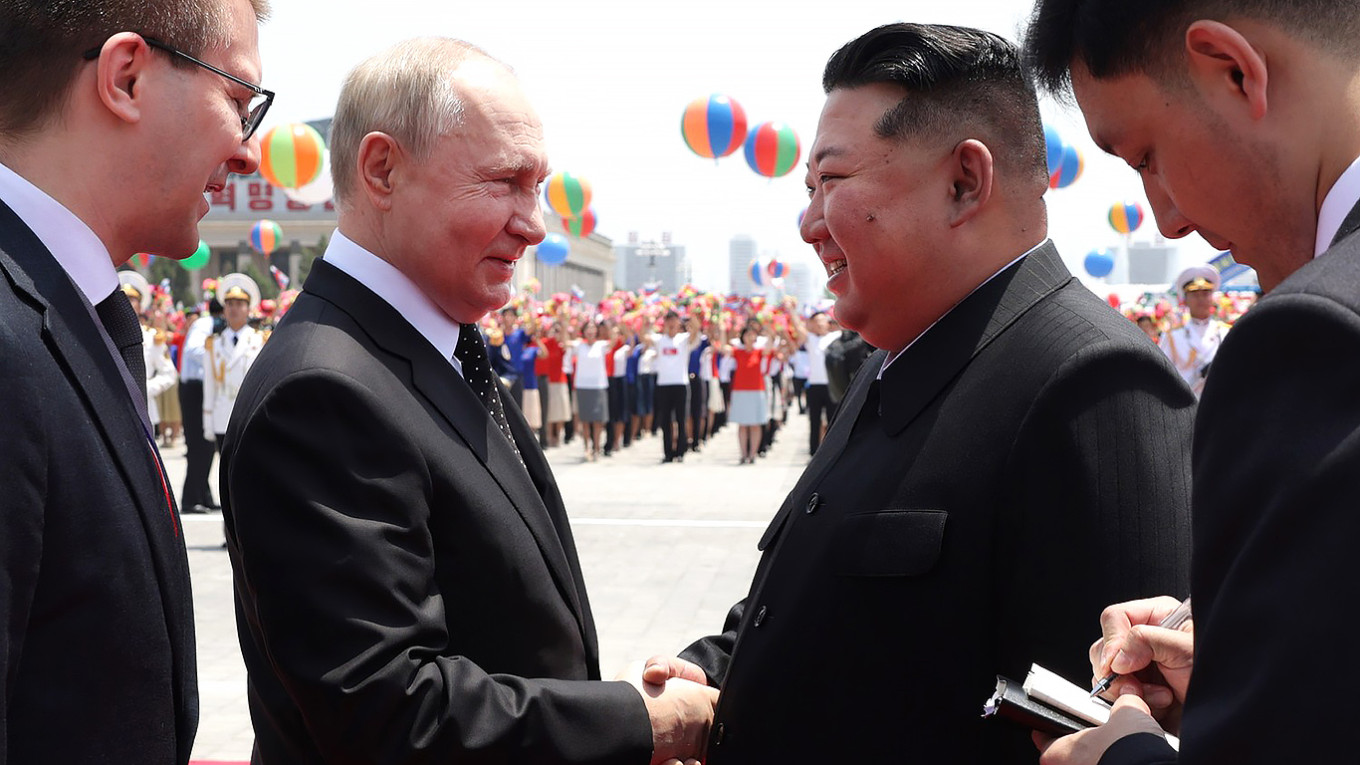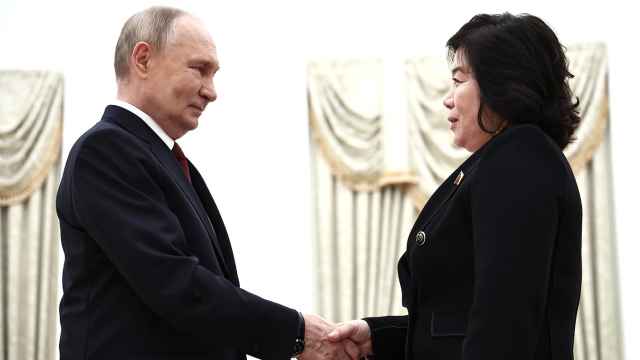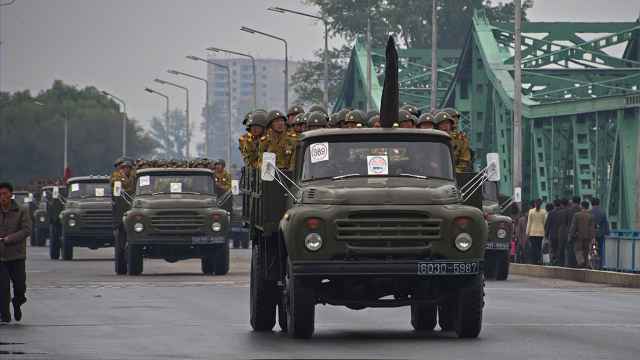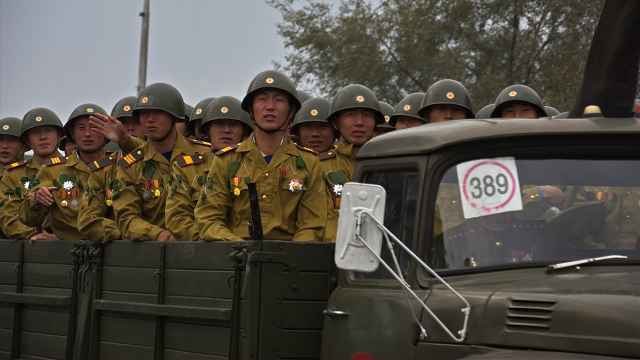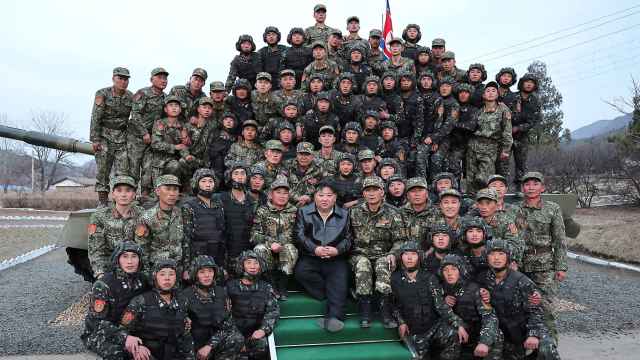Nearly a quarter-century after his last visit to Pyongyang, Russian President Vladimir Putin has returned to the North Korean capital. The visit hardly went as smoothly as one would hope — time was cut short, some aspects of protocol were poorly coordinated. But it set the stage for an increasingly close relationship between the two states in their efforts to skirt international law.
The revival of a mutual defense agreement between the DPRK and Russia is arguably the most remarkable development from the summit. Even that ground-shaking development, however, went somewhat awkwardly as Kim referred to the agreement as establishing an “alliance,” a term Putin did not use. However, analysts and policymakers are also watching for what implications this partnership between Moscow and Pyongyang will have for the current sanctions regime against North Korea.
Among the chief concerns in the West is that the Kremlin is ultimately aiming to upend the international sanctions regime against the DPRK as part of Russian efforts to revise the global order more to its liking.
Nevertheless, this may not be what motivates Putin. Rather what we may be seeing is the resumption of a pre-pandemic trajectory of pursuing economic cooperation with North Korea, one in which the Kremlin will be less inclined to adhere to international law regarding the DPRK.
Regardless of Moscow’s intentions, pursuing economic cooperation with North Korea – which featured as part of Kim Jong Un’s first summit with Putin in 2019 — does pose a grave risk to the current global order. It potentially signals the next step in the full-scale unraveling of punitive economic measures designed to curb North Korea’s nuclear and missile programs.
This summit, which Pyongyang hopes will lead to deeper economic and trade relations with Russia, signals that Moscow is continuing with long-standing policies aimed at pursuing economic cooperation with North Korea. Prior to 2020, prospects for DPRK-Russia economic collaboration were on the upswing — including as part of a potential trilateral arrangement with South Korea — before North Korea’s self-imposed isolation during the pandemic brought everything to a halt.
Ahead of his visit to the DPRK, Putin announced that North Korea and Russia would jointly oppose the “unilateral and illegal” sanctions laid against them. Such language is a marked departure from Moscow’s previous position that UN sanctions were legitimate, but the unilateral sanctions imposed by the U.S. Treasury Department were not.
Konstantin Asmalov of the Russian Academy of Sciences asserts that whereas Russia approved UN sanctions against the DPRK in response to its repeated nuclear tests in 2016-2017, Moscow now regards that as a mistake given that the U.S. did not allow for sanctions relief in spite of North Korea’s moratorium on nuclear testing.
North Korea’s importance to Russia is directly tied to the economic development of the Russian Far East, from importing North Korean labor to using the warm water port at Rason close to the DPRK-Russia border. Even amid Russia’s efforts to enhance economic ties with countries in the Asia-Pacific, Russia approved sanctions (albeit reluctantly) against North Korea in response to its repeated nuclear tests. These restrictions placed strong limits on economic cooperation, undermining Moscow’s desire for an improved economic relationship with Pyongyang.
Today, however, with Russia itself the most heavily sanctioned country in the world, Moscow has fewer incentives to adhere to the very economic measures it approved at the UN Security Council.
Russia’s adherence to sanctions against the DPRK was patchy even before 2022. Nevertheless, even in the face of evidence clearly showing Russia is violating these sanctions, the Kremlin remains adamant that it has remained faithful to them. This shows Moscow understands what the implications would be if it explicitly rejected these sanctions.
Konstantin Asmalov, an academic studying North Korea at the Russian Academy of Sciences, recently argued that while the possibility that Pyongyang and Moscow would combine forces to undo UN sanctions cannot be ruled out, the Kremlin is well aware doing so would risk its privileges at the United Nations. As such, in Asmalov’s opinion, the DPRK and Russia may merely cooperate in perfectly legal areas or perhaps even in “gray areas.”
Indeed, even in the face of well-grounded accusations of misconduct, the Russian government has performed rhetorical acrobatics to justify its actions. These ranged from flat-out denial to claiming that the deployment of North Korean workers to Russian-occupied eastern Ukraine was acceptable because Russia viewed the regions to be independent states, though not members of the UN. Furthermore, Russia’s decision to disband the UN Panel of Experts for North Korea in 2024 indicates Moscow is willing to enable North Korea to flout sanctions more easily.
Thus, the most important thing for analysts to do after Wednesday’s summit is to watch for the speed and scope with which Russia decides to openly flout the UN’s punitive economic measures. Prior to 2020, Russia pursued economic cooperation with North Korea largely (but by no means entirely) within the scope of UN sanctions.
The speed and extent to which Russia ignores sanctions against the DPRK following the 2004 Kim-Putin summit will serve as a metric for how much importance the Kremlin places on this relationship. The more willing Moscow is to act against the global consensus against Pyongyang, the more important the alliance will become. Aside from Russia’s interest in North Korean weaponry and workers, the Kremlin is also likely to deepen relations by exporting fuel to the DPRK and importing North Korean coal.
It is in Russia’s interests to strengthen economic ties with North Korea to the fullest possible extent. Moscow has an opportunity to build economic leverage over Pyongyang at the expense of China, prevent a North Korean regime collapse and, of course, access to North Korean weaponry.
With Kim Jong Un and Vladimir Putin having established a clear working relationship, the two leaders will likely work closely to determine how far they are willing to go to circumvent international law, leaving the rest of the world to find out.
A Message from The Moscow Times:
Dear readers,
We are facing unprecedented challenges. Russia's Prosecutor General's Office has designated The Moscow Times as an "undesirable" organization, criminalizing our work and putting our staff at risk of prosecution. This follows our earlier unjust labeling as a "foreign agent."
These actions are direct attempts to silence independent journalism in Russia. The authorities claim our work "discredits the decisions of the Russian leadership." We see things differently: we strive to provide accurate, unbiased reporting on Russia.
We, the journalists of The Moscow Times, refuse to be silenced. But to continue our work, we need your help.
Your support, no matter how small, makes a world of difference. If you can, please support us monthly starting from just $2. It's quick to set up, and every contribution makes a significant impact.
By supporting The Moscow Times, you're defending open, independent journalism in the face of repression. Thank you for standing with us.
Remind me later.


